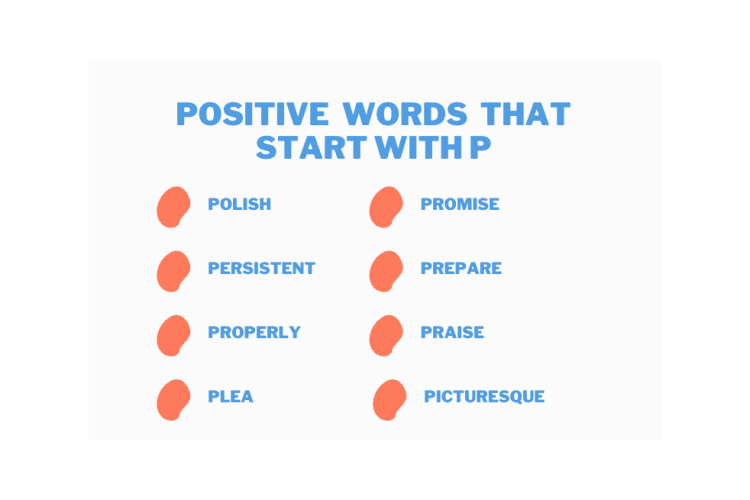This is our second article on unit testing in AngularJS. Previously we had written an article on how to setup our machine and get started with unit testing, we also wrote a test for a custom filter. In this article, we will see how we can unit test controllers in AngularJS with Karma and Jasmine. We will try to make this as simple as possible as we did in our previous tutorial.
If you are getting started with Unit testing please give a read to the getting started guide linked below.
Table of Contents
ToggleSetup and Testing Pattern
We have already covered this in the previous article(link above). Please read about the testing pattern we are using in that article as it is crucial for further understanding. We will continue with the same setup and testing pattern. Below are all the existing files.
../
app/
app.js //angular code here
node_modules/
tests/
app.specs.js //tests here
karma.conf.js
package.json
// Karma configuration
// Generated on Sun Jun 12 2016 12:34:55 GMT+0530 (India Standard Time)
module.exports = function(config) {
config.set({
// base path that will be used to resolve all patterns (eg. files, exclude)
basePath: '',
// frameworks to use
// available frameworks: https://npmjs.org/browse/keyword/karma-adapter
frameworks: ['jasmine'],
// list of files / patterns to load in the browser
files: [
'node_modules/angular/angular.js',
'node_modules/angular-mocks/angular-mocks.js',
'app/*.js',
'tests/*.js',
],
// list of files to exclude
exclude: [
],
// preprocess matching files before serving them to the browser
// available preprocessors: https://npmjs.org/browse/keyword/karma-preprocessor
preprocessors: {
},
// test results reporter to use
// possible values: 'dots', 'progress'
// available reporters: https://npmjs.org/browse/keyword/karma-reporter
reporters: ['progress'],
// web server port
port: 9876,
// enable / disable colors in the output (reporters and logs)
colors: true,
// level of logging
// possible values: config.LOG_DISABLE || config.LOG_ERROR || config.LOG_WARN || config.LOG_INFO || config.LOG_DEBUG
logLevel: config.LOG_INFO,
// enable / disable watching file and executing tests whenever any file changes
autoWatch: true,
// start these browsers
// available browser launchers: https://npmjs.org/browse/keyword/karma-launcher
browsers: ['PhantomJS'],
// Continuous Integration mode
// if true, Karma captures browsers, runs the tests and exits
singleRun: false,
// Concurrency level
// how many browser should be started simultaneous
concurrency: Infinity
})
}
{
"name": "unit-testing-controllers",
"version": "1.0.0",
"description": "",
"main": "index.js",
"scripts": {
"test": "karma start"
},
"keywords": [],
"author": "Rahil",
"license": "ISC",
"dependencies": {
"angular": "1.5.6",
"jasmine-core": "2.4.1"
},
"devDependencies": {
"angular-mocks": "1.5.6",
"jasmine-core": "2.4.1",
"karma": "0.13.22",
"karma-coverage": "1.0.0",
"karma-jasmine": "1.0.2",
"karma-phantomjs-launcher": "1.0.0",
"phantomjs-prebuilt": "2.1.4"
}
}Roadmap
In this tutorial, we will look at the following scenarios. We will majorly work with the controller as syntax, but I will show you how to deal with the $scope pattern as well, with a simple example.
- Testing in Controller As syntax
- Testing Methods that set property
- Testing Methods that return value
- Testing in $scope pattern
- Mocking external dependencies used by the controller and testing the result
Testing a single property in Controller As syntax
Let us first create a controller in our app.js with a single property.
angular.module('MyApp', [])
.controller('myctrl',[function(){
var vm = this;
vm.mode = 'fun'; //Lets test if property name is set to Rahil
}]);As you can see there is nothing much in our controller, just a single property vm.mode which is set to fun. Now open up app.specs.js and lets write a test to check if the property is setting properly.
describe('Controllers', function(){ //describe your object type
beforeEach(module('MyApp')); //load module<br />
describe('myctrl',function(){ //describe your app name<br />
var myctrl;
beforeEach(inject(function($controller){ //instantiate controller using $controller service
myctrl = $controller('myctrl');
}));
it('Mode should be fun', function(){ //write tests
expect(myctrl.mode).toBe('fun'); //pass
});
});
});As you can see above we are first describing our object type next injecting module then we describe our controller. Next, we are initializing our controller and assigning it to myctrl using the $controller service.
Notice since we are using the controller as syntax we will need a reference to an instance of our controller to access the methods and properties defined on it. In our case, we are assigning the instance to myctrl
Finally, we have written a simple test using the it block. To run the test, navigate into your working directory using command-line and run the below command.
$ karma start
OR
$ npm testTesting methods that set a property
Now let’s write a method that will set the description to (child, teen, adult) based on the age group. Where we will provide age as a parameter.
angular.module('MyApp', [])
.controller('myctrl',[function(){
var vm = this;
vm.mode = 'fun';
/** Adding method here */
vm.setDescription = function(age){
if(age <= 10){
vm.description = 'child';
} else if(age > 10 && age < 18){
vm.description = 'teen';
} else if(age >= 18){
vm.description = 'adult';
}
}
}]);describe('Controllers', function(){ //describe your object type
beforeEach(module('MyApp')); //load module
describe('myctrl',function(){ //describe your app name
beforeEach(inject(function($controller){ //instantiate controller using $controller service
myctrl = $controller('myctrl');
}));
it('Mode should be fun', function(){ //write tests
expect(myctrl.mode).toBe('fun'); //pass
});
/** Specs to test vm.description */
it('Should set desciption according to age', function(){
myctrl.setDescription(4); //calling the method with age=4
expect(myctrl.description).toBe('child'); //testing the property
myctrl.setDescription(15); //calling the method with age=15
expect(myctrl.description).toBe('teen');
myctrl.setDescription(54); //calling the method with age=54
expect(myctrl.description).toBe('adult');
});
});
});Testing Methods that return value
Let us write a simple method that takes in two numbers and returns us the added value.
Open up app.js and add the following.
vm.add = function(a,b){
if(typeof a !== 'number' || typeof b !== 'number'){
return 'invalid args';
}
return a+b;
}/** Specs to test vm.add() */
it('Should add two numbers', function(){
expect(myctrl.add(4,2)).toBe(6); //4+2 = 6
expect(myctrl.add('abcd',2)).toBe('invalid args'); // wrong arg type
});Testing in $scope pattern
Sometimes it might be the case that you are using $scope pattern for your controllers and that all of your properties and methods would be defined on the $scope variable. Testing them is easy as well. Have a look below.
var myctrl;
var scope;
beforeEach(inject(function($controller, $rootScope){ //instantiate controller using $controller service and inject $rootScope service
scope = $rootScope.$new();
myctrl = $controller('myctrl', {
scope : scope
});
}));Mocking external dependencies used by the controller and testing the result
We will take an example of an asynchronous function defined on a factory on which our controller is depending. We are using this example as asynchronous functions are the trickiest to deal with while writing unit tests.
Let us go ahead and create a factory function and use it in our controller.
angular.module('MyApp', [])
.factory('myFactory',['$q', function($q){
return {
fetchServerData : function(error){
/** error is passed just as an example
real case scenairio wolud be different and usually depend
on the response from the web-service */
var d = $.q.defer();
if(error){
d.reject('Some error occured');
} else {
d.resolve('Success');
}
return d.promise;
}
}
}]);/** Calling our asynchronous service
* setting hasError and message properties
* There properties must be tested in specs
*/
myFactory.fetchServerData().then(function(response){
//success scenario
vm.hasError = false
vm.message = response;
}, function(response){
//error scenario
vm.hasError = true;
vm.message = response;
});
var d;
var myFactory;
beforeEach(inject(function($q, _myFactory_){ //Mock our factory and spy on methods
d = $q.defer();
myFactory = _myFactory_;
spyOn(myFactory, 'fetchServerData').and.returnValue(d.promise);
}));
var myctrl;
var scope;
beforeEach(inject(function($controller, $rootScope){ //instantiate controller using $controller service
scope = $rootScope.$new();
myctrl = $controller('myctrl', {
myFactory : myFactory, //inject factory
scope : scope
});
}));
Since our fetchServerData is asynchronous and returns a promise. We need to mock it to replicate a similar behaviour insde our specs using the $q service.
Using Jasmines spyOn method we can track our methods and replicate actual implementations.
Now that we are spying our method we can writes assertions to test the same.
describe('Asyn call', function() {
it('should call fetchServerData on myFactory', function() {
expect(myFactory.fetchServerData).toHaveBeenCalled();
expect(myFactory.fetchServerData.calls.count()).toBe(1);
});
it('should do something on success', function() {
d.resolve('Success'); // Resolve the promise to replicate success scenario.
scope.$digest();
// Check for state on success.
expect(myctrl.hasError).toBe(false); //testing properties
expect(myctrl.message).toBe('Success');
});
it('should do something on error', function() {
d.reject('Some error occured'); // Reject the promise to emulate error scenario.
scope.$digest();
// Check for state on error.
expect(myctrl.hasError).toBe(true);
expect(myctrl.message).toBe('Some error occured');
});
});Final Files
Our complete app.js and app.specs.js files look like this.
angular.module('MyApp', [])
.controller('myctrl',['myFactory', function(myFactory){
var vm = this;
vm.mode = 'fun';
vm.setDescription = function(age){
if(age <= 10){
vm.description = 'child';
} else if(age > 10 && age < 18){
vm.description = 'teen';
} else if(age >= 18){
vm.description = 'adult';
}
}
vm.add = function(a,b){
if(typeof a !== 'number' || typeof b !== 'number'){
return 'invalid args';
}
return a+b;
}
/** Calling our asynchronous service
* setting hasError and message properties
* There properties must be tested in specs
*/
myFactory.fetchServerData().then(function(response){
vm.hasError = false
vm.message = response;
}, function(response){
vm.hasError = true;
vm.message = response;
});
}])
.factory('myFactory',['$q', function($q){
return {
fetchServerData : function(error){
/** error is passed just as an example
real case scenairio wolud be different and usually depend
on the response from the web-service */
var d = $.q.defer();
if(error){
d.reject('Some error occured');
} else {
d.resolve('Success');
}
return d.promise;
}
}
}]);
describe('Controllers', function(){ //describe your object type
beforeEach(module('MyApp')); //load module
describe('myctrl',function(){ //describe your app name
var d;
var myFactory;
beforeEach(inject(function($q, _myFactory_){ //Mock our factory and spy on methods
d = $q.defer();
myFactory = _myFactory_;
spyOn(myFactory, 'fetchServerData').and.returnValue(d.promise);
}));
var myctrl;
var scope;
beforeEach(inject(function($controller, $rootScope){ //instantiate controller using $controller service
scope = $rootScope.$new();
myctrl = $controller('myctrl', {
myFactory : myFactory, //inject factory
scope : scope
});
}));
it('Mode should be fun', function(){ //write tests
expect(myctrl.mode).toBe('fun'); //pass
});
/** Specs to test vm.description */
it('Should set desciption according to age', function(){
myctrl.setDescription(4); //calling the method with age=4
expect(myctrl.description).toBe('child'); //testing the property
myctrl.setDescription(15); //calling the method with age=15
expect(myctrl.description).toBe('teen');
myctrl.setDescription(54); //calling the method with age=54
expect(myctrl.description).toBe('adult');
});
/** Specs to test vm.add() */
it('Should add two numbers', function(){
expect(myctrl.add(4,2)).toBe(6); //4+2 = 6
expect(myctrl.add('abcd',2)).toBe('invalid args'); // wrong arg type
});
describe('Asyn call', function() {
it('should call fetchServerData on myFactory', function() {
expect(myFactory.fetchServerData).toHaveBeenCalled();
expect(myFactory.fetchServerData.calls.count()).toBe(1);
});
it('should do something on success', function() {
d.resolve('Success'); // Resolve the promise to replicate success scenario.
scope.$digest();
// Check for state on success.
expect(myctrl.hasError).toBe(false); //testing properties
expect(myctrl.message).toBe('Success');
});
it('should do something on error', function() {
d.reject('Some error occured'); // Reject the promise to emulate error scenario.
scope.$digest();
// Check for state on error.
expect(myctrl.hasError).toBe(true);
expect(myctrl.message).toBe('Some error occured');
});
});
});
});
All the files can be downloaded from here.
Conclusion
In our previous tutorial, we had already learned about getting started with unit testing in AngularJS. In this tutorial, we took our skills a step further by learning all possible scenarios of unit testing controllers in AngularJS. Hopefully testing any controller would not be a problem from now on.


